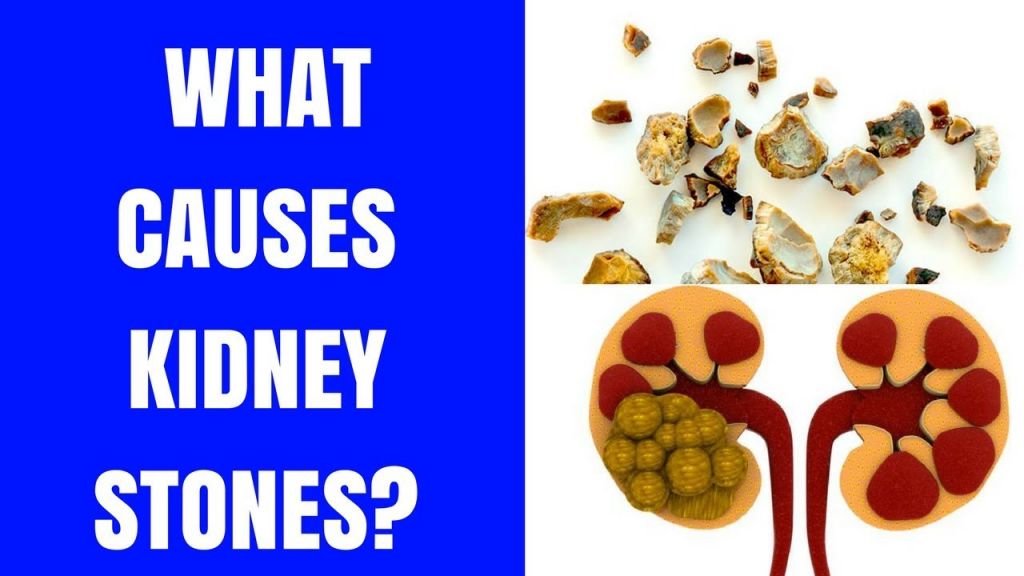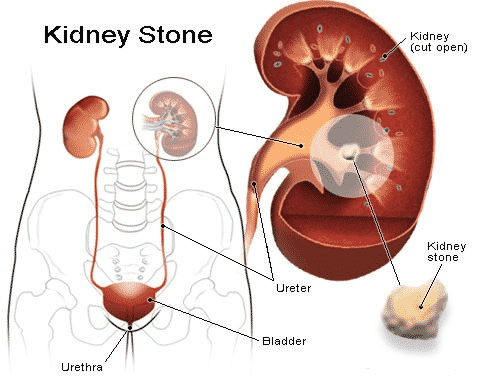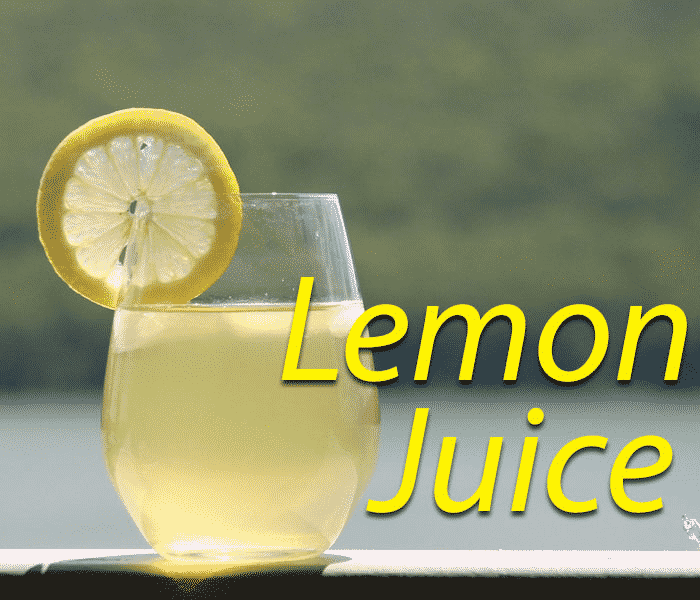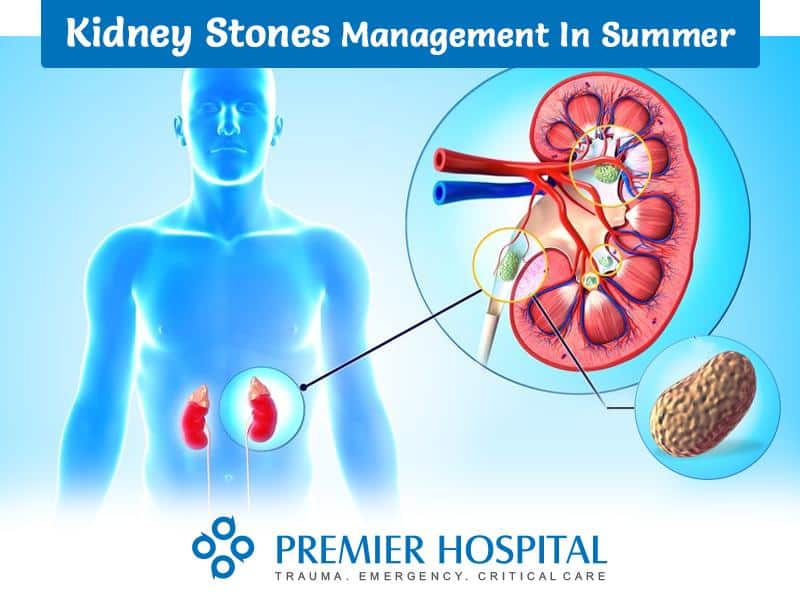Kidney Stones Management in Summer
by Premier Hospitals | April 29, 2019 |
Summer is all about beaches, pools, and fun in the sun. But with all that summer also aggravate an unexpected risk called kidney stones. Warm can be a warning sign of kidney stone disease and which is more common in the summer. You will be at an increased risk to suffer from kidney stone disease during the summer than at any other time of year.
What are Kidney Stones?
Kidney stone disease affects around 3.8 million people in India every year. Kidney stones are the small, hard deposits of mineral and acid salts that form when urine becomes concentrated. These minerals crystallise and stick together and create a stone ranging in size from a grain of sand to a golf ball.
Kidney stones vary in size that is as small as a grain of sand or as large as a pea. However, the smaller stone passes through the body without medical treatment. If your kidney stones are on the move, you may experience symptoms such as bloody urine, fever and chills, nausea and vomiting and a constant urge to urinate.
What Causes Kidney Stones?

Some people get kidney stones than others, and if you don’t drink enough water, then you are putting yourself at risk for kidney stones. This is the reason more people develop kidney stones in the summer when the heat makes staying hydrated a challenge. Some other factors contributing to kidney stones include:
- Family food habits
- A diet low in fibre
- A diet high in salt and protein
- Lack of exercise
- Taking certain medicines
- Being in between the ages of 20 and 70
- Have or had suffered kidney stones in the past
- Obesity
If you have or had a kidney stone in the past, then it is essential to work for preventing future kidney stones. About 15 per cent of people suffering from kidney stones will experience another stone within a year.
Why treat your kidney stones?
Untreated kidney stones can lead to:- Chronic renal failure
- Kidney damages
- Kidney cancer
- Formation of other kidney stones
- A decreased ability of the kidneys functioning
- More renal colic pain and tingling
 Ways to Avoid Kidney Stones In Summer
The following are some possible ways through which you can avoid the formation of kidney stones during the summer:
Drinking Water Helps
Ways to Avoid Kidney Stones In Summer
The following are some possible ways through which you can avoid the formation of kidney stones during the summer:
Drinking Water Helps
Once you have had a stone, then you are at risk of developing another one within the next five years, and it generally increases with advancing age.
If you are at risk for kidney stones, then you have to drink at least 12 glasses of water every day. It will help to dilute your body liquids, as well as calcium oxalate, the substance that forms most types of kidney stones. Drinking enough water is the only way to prevent the development of renal stones.
The focus on kidney stone prevention is not the amount of fluid to be consumed, but rather the amount of urine produced. In the summer months, excess intake is must to counteract the summer’s dehydrating effects.
Increase Urine OutputPerspiration decreases urine volume, and it would be wise to maintain high urine output. Pale or clear urine 24 hours per day, and seven days a week can help to prevent stone formation. The volume of urine has to exceed 2 litres per day. Though water is the best liquid, fruit juices are also acceptable.
The Optimum Quantity of Salt and Sodium Intake- Limit consuming beverages that are high in caffeine or calories.
- Avoid sports drinks high in sodium and minerals
- Limit salt and sodium intake because it drives extra calcium into the urine leading to calcium stone formation.
It is a misconception that individuals with calcium stones have to avoid dairy products. Consuming a reasonable amount of calcium in the diet is recommended for all patients who form stones.
Magnesium for Prevention and CureMagnesium inhibits the stone formation. It blocks the spasm and not only relieves the pain quickly but also helps you to dislodge the stone. Taking the supplement magnesium citrate/malate help, you get the best of all worlds.
Drink Lemon Water

Lemon water prevents kidney stones formation, squeeze the juice of fresh lemon and add a drop of therapeutic grade lemon essential oil into a glass of water and drink daily. If you or your loved one have a kidney stone, then squeeze a fresh lemon into a glass of water and have a glass of fresh lemon every half hour until the pain eases.
Eat Less Animal Protein

Animal protein sources like meat, fish and dairy are associated with a higher risk of kidney stones because it increases the calcium excretion and decrease levels of citrate. They are also rich in purines which can break down into uric acid and increases the risk of forming uric acid stones.
Additional ways to avoid kidney stones:
-
Exercise regularly.
-
Avoid dark colas.
-
Limit sodium up to 1,500 mg per day.
-
Eat two fresh lemons or lime concentrate daily
-
Avoid excessive use of over-the-counter medicines as it can increase the risk of stone formation
-
Avoid intake of food high in oxalate because it binds with calcium and form stones in the kidneys
-
Say no to processed foods because it increases the probability of stone formation
-
Lose excess weight since obese tend to excrete more acidic urine, and it can put you at the risk of stone formation.
Conclusion:
Prevention is always better than a cure. If kidney stones are too large to be passed naturally (6-7 mm in diameter or larger), then seek treatment from your doctor to remove it by other methods including extracorporeal shock wave lithotripsy, ureteroscopy, percutaneous nephrolithotomy or open surgery. However, the type of treatment depends on the size and location of your stones.
About The Hospital:
Since the inception of Premier Hospital in 1991 till today, we have grown to unprecedented levels, due to our excellence in medical sciences and healthcare. Premier Hospital is the creation of Dr Mahesh Marda and when it was first established, was only a small, 30-bed hospital facility. Back then, we provided only secondary care to patients, but that certainly has changed in the present landscape.















